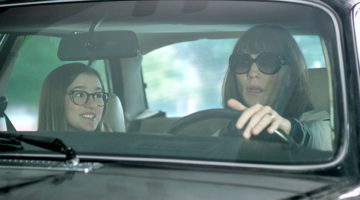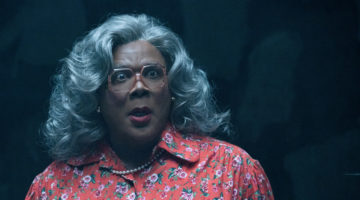Review: Diana
Synopsis:
Diana is a biopic of the last two years of the late Princess Diana, a beloved media icon who could never escape the limelight. This drama focuses on her affair with a Pakistani doctor, and as she tries to negotiate her fragile image in the press with humanitarian missions around the world.
Cast:
Naomi Watts plays the eponymous princess, while Naveen Andrews is the love interest, who accepts Diana as a sensitive person, not some glamorous celeb.
Review:
Diana was one of England’s most beloved princesses – her charm undeniable, her compassion extraordinary. However, German director Oliver Hirschbiegel has created a biopic on the Princess of Wales that sentimentalizes yet does not glorify her achievements. It’s an ad hominem approach be sure, but with good intentions: I admired the restlessness of its formal style, the melancholic tone, and the earnestness of its aims.
Since Diana died in a car accident on August 31, 1997, Hirschbiegel must conceive his Diana, played terrifically by Naomi Watts, as a tragic character – a courageous woman who could never escape the spotlight of the media, the hype machine that ultimately precipitated her death (Diana’s vehicle was trying to escape paparazzi). Hirschbiegel emphasizes the severity to which the media dominates her lifestyle, and how Diana copes as a result.
The film centers on Diana’s nearly two-year affair with Pakistani heart surgeon Hasnat Khan (LOST’s Naveen Andrews), and from there the story tries to balance that flame of romance with the Princess’s own fascination with humanitarian missions. At some moments the media embraces her heroism, other times – particularly with her personal life – they deride her. Diana was always being watched, written about, or appreciated. In one scene, Diana walks down a hospital’s corridor and at both sides of the frame – glinting, awestruck eyes gawk as she struts by.
Hirschbiegel’s technique is visually, courtesy of Rainer Klausmann’s cinematography, capable of revealing the way Diana’s space is often filled with admirable eyes at each flank. Even the opening, which begins moments before he death, shows Diana solely from behind as she enters the Paris Ritz’s elevator heading down to jostle through her last crowd of journalists and sycophants. It’s a wonderful sequence – Hirschbiegel’s buoyant camera sways like Malick’s – plus a final shot of a security camera-p.o.v. highlights the surveillance, under-the-microscope nature of Diana’s lifestyle.
Diana is, in a way, a very sad movie. It’s about how the media can swallow up lives with the stupid tabloid reports and fallacious news stories. But so long as celebrities exist, and as this film’s poster declares Diana was “the most famous woman in the world”, the media will have to give the masses what they want: someone to admire, glamorize, or at least obsess over.
I think this is a relevant point about today’s media, even if Hirschbiegel’s narrative is riddled with artifice. Diana’s trysts with the doctor, her late-night crying spell in a park, and a trip to visit her lover’s parents in Pakistan, while totally sincere sequences, feel like expository, emotional regurgitations of Diana’s real life. The movie instead wants to manufacture an emotional core to the Diana character, make her a human being not simply a royal icon.
It’s a noble effort by Hirschbiegel, who directed I might add the mesmerizing Downfall. He’s also aided by strong performances, like Watts and Andrews’s as well as others by Douglas Hodge as Diana’s butler Paul Burrell and Geraldine James as Diana’s friend, who push the fluffy drama away from melodrama. Diana is sentimental but not mawkish, and thus somewhat sustains its human portrait of the Princess of Wales.
However, the movie is very flawed due to that restlessness I mentioned earlier. Since Hirschbiegel is so interested in a detailed portrayal of Diana’s final two years, this biopic meanders beyond compare. Diana’s affair is interrupted by several trips to Africa where she strived to ban land mines; also, you have that aforementioned detour to Pakistan, and a media stunt on a yacht. All this jumping around connects to Diana’s efforts to outrace the media, but it ultimately causes the story to outrace its own simple ambitions, as the lack of coherence in Stephen Jeffreys’s screenplay drains the story’s emotional essence.
Diana has been slammed for its slew of historical inaccuracies. There’s a certain argument to be made about “truthfulness” in the cinema. A movie is its own entity, but it owes a certain royalty to history when it decides to dramatize it, I suppose. But nobly, Hirschbiegel creates a narrative, based on the book “Diana: Her Last Love” by Kate Snell, that at least tries to make us rue the tragically, obsessively stifled life of Princess Diana. So in spite of its flaws, I admired the damn picture.
Should You See It?
You will probably be polarized, but I recommend you give Hirschbiegel’s nobel vision of Princess Diana a shot. It’s one of the more visually compelling movies in awhile, even if its script is a bit all over the place, literally and figuratively.
[star v=3]








